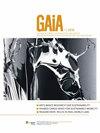巴伐利亚州的气候变化观念:揭示社会人口和当地环境因素的影响
IF 1.9
4区 社会学
Q4 ENVIRONMENTAL SCIENCES
引用次数: 0
摘要
对气候变化认知的研究主要集中在社会因素或环境因素上,缺乏跨学科性。本研究通过评估两者的影响来弥补这一差距。我们的分析表明,社会行为者群体隶属关系是对气候变化感知的最强预测因子。人们对气候变化的认识对于他们是否准备参与减缓和适应至关重要。为了确定影响人们对气候变化看法的最重要因素,我们在德国巴伐利亚州进行了一项全面调查。总体而言,来自四个社会行动者群体的2,594人接受了调查,即1,413名农民,197名护林员,152名自然管理者和832名公民(没有特定的职业)。我们探讨了环境因素(基于地理数据的气候趋势和受访者居住地的土地覆盖状况)和社会人口因素(基于调查数据的年龄、性别、教育程度、社会行为者群体归属)在多大程度上影响对气候变化的看法。包括随机森林算法在内的数据分析显示,社会人口因素,特别是社会行为者群体隶属关系,是影响最大的变量。当地的土地覆盖条件和气候趋势对居民的看法影响很小。因此,我们的研究结果建议考虑社会人口因素来调整气候沟通、政策和提高意识的运动,特别是针对对气候变化最持怀疑态度的社会群体。本文章由计算机程序翻译,如有差异,请以英文原文为准。
Climate change perceptions in Bavaria: Revealing the influence of socio-demographic and local environmental factors
Research on perceptions of climate change has been focused on either social or environmental factors, lacking interdisciplinarity. This study bridges this gap by assessing the influence of both. Our analyses reveal societal actor group affiliation as the strongest predictor for the perception of climate change.People’s perceptions of climate change are crucial for their readiness to engage in mitigation and adaptation. To identify the most influential factors in shaping perceptions of climate change, we conducted a comprehensive survey, carried out in Bavaria, Germany. Overall, 2,594 individuals across four societal actor groups were surveyed, namely 1,413 farmers, 197 foresters, 152 nature managers, and 832 citizens (no specific profession). We explored to what extent environmental factors (climate trends and land cover conditions in interviewees’ place of residence ‐ based on geographical data) and socio-demographic factors (age, gender, education, societal actor group affiliation ‐ based on survey data) influence perceptions of climate change. Data analyses, including random forest algorithms, revealed socio-demographic factors, particularly societal actor group affiliations, as most influential variables. Local land cover conditions and climate trends only marginally affected residents’ perceptions. Consequently, our results suggest to consider socio-demographic factors for tailoring climate communication, policies and awareness raising campaigns, particularly targeting societal groups most skeptical about climate change.
求助全文
通过发布文献求助,成功后即可免费获取论文全文。
去求助
来源期刊

Gaia-Ecological Perspectives for Science and Society
ENVIRONMENTAL SCIENCES-
CiteScore
2.30
自引率
18.80%
发文量
43
审稿时长
>12 weeks
期刊介绍:
GAIA is a peer-reviewed inter- and transdisciplinary journal for scientists and other interested parties concerned with the causes and analyses of environmental and sustainability problems and their solutions.
Environmental problems cannot be solved by one academic discipline. The complex natures of these problems require cooperation across disciplinary boundaries. Since 1991, GAIA has offered a well-balanced and practice-oriented forum for transdisciplinary research. GAIA offers first-hand information on state of the art environmental research and on current solutions to environmental problems. Well-known editors, advisors, and authors work to ensure the high quality of the contributions found in GAIA and a unique transdisciplinary dialogue – in a comprehensible style.
 求助内容:
求助内容: 应助结果提醒方式:
应助结果提醒方式:


